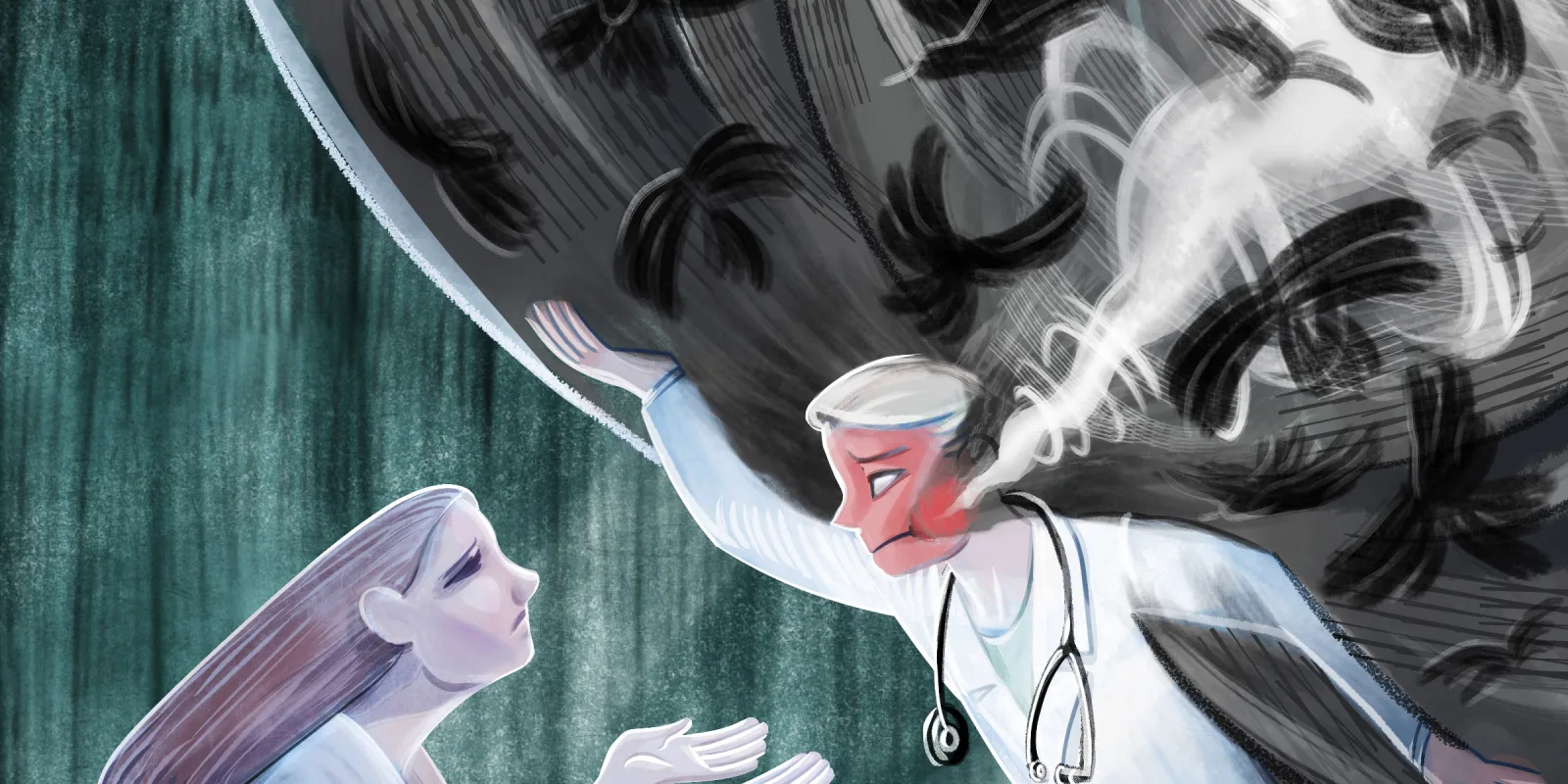
As an emergency medicine physician, I often go home and watch "mindless television" to decompress after an intense shift. I'll never forget one night as a first year attending when a commercial for the nightly news came on. There was a gut-wrenching snippet of a woman describing the feeling she had as she walked through the emergency department, feeling the intensity of people's stares, before being told that her sweet healthy baby boy had died.
I felt numb with shock. I know her. We all know her – the nurses, the techs, the PAs. I never forgot that day. We received a pre-hospital notification for an infant male in cardiac arrest. I remember preparing the Broslow tape. I remember reviewing endotracheal tube size, depth, and Miller blade size. I remember thinking prior to arrival that I hadn't run very many pediatric codes in residency and I had never intubated a baby. I remember telling myself "...it's okay. You've trained for this. You got this. Just keep it together."
As the EMS crew rolled through the door, my team and I stood there ready. The baby was already intubated. I breathed a sigh of relief knowing that was already done. We continued doing CPR and giving the appropriate medications. And we continued and continued for a very long time. Because when it's a kid, you don't stop. That's just how it is.
We continued way past the point when further resuscitation was futile. I directed my team to call it. With looks of defeat on our faces, we nodded in unison and I called time of death. This was bad. Real bad.
As we searched for family, I prepared myself. I had to tell them. Although a fairly new attending at this point, I was no stranger to delivering bad news. Generally, you are told to be direct and don't use euphemisms. Don't say, "he passed..." Say "he died." Yet, this felt different. Could I just say that? It occurred to me that this was the first time that I was telling a parent that their baby had died.
The patient's mother looked at me crying, pleading with her eyes without words. She knew. I knew that she knew. Her eyes expressed hope that I would say something different than what she likely knew I was about to tell her. I don't remember the exact words I used that day. Yet, I can imagine that the only word his mother heard as I tried to set up the scenario and explain that we did everything we could was "died." I uttered the words "He died."
As a medical student, a resident, and even sometimes as an attending, you do procedures for the first time. You approach them with excitement and maybe some trepidation. With experience, you improve, you become more confident, and eventually, it becomes just another central line or just another lumbar puncture or just another intubation. I don't remember how many procedures that I have done, but I remember every single time I have told a parent that their child died.
I recently told a couple that their healthy teenage son had died in a car accident. Again, his mother cried and repeatedly said "no, no, no" as his dad held her and I explained everything that we had done. Again, she seemed to be praying that I wasn't about to say what she knew that I was about to say. Again, I delivered the news that no parent ever wants to hear. As I walked out of the grieving room, several detectives stood there and told me that I did a great job and they were glad it was me and not one of them. I felt raw inside. I was just part of an incredibly painful human experience. That pain is not fleeting and does not disappear when I walk out of the hospital and certainly doesn't disappear with a few hours of television.
When the detective complimented me, I told him that I didn't feel as if I did a great job. He replied, "Doc, when it does, it's time to get out." Wow! What wise words! Every time that I tell a loved one that their family member has died, I always reflect on whether or not I could have handled it better. That detective made me realize that I will never feel fully comfortable giving bad news, especially to parents, and that's fine. Those feelings of trepidation that I felt as I told the infant's mother that he died, will be there every time I tell a parent their child died. As physicians, we are given the opportunity to be a part of the most intimate parts of people's lives. That is such an amazing privilege. When we take that privilege for granted, we need to take a step back, reflect, and reset so that it won't be "time to get out."
Cindy Baseluos is an emergency medicine physician in New York City.







